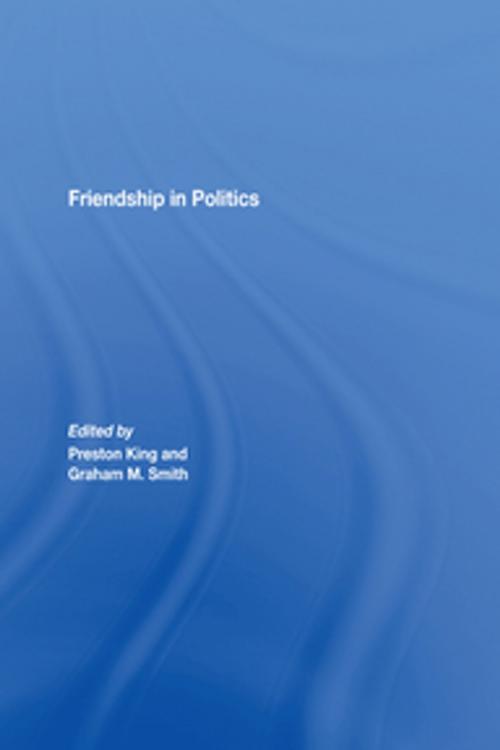Friendship in Politics
Theorizing Amity in and between States
Nonfiction, Social & Cultural Studies, Political Science, International, International Relations| Author: | ISBN: | 9781317969679 | |
| Publisher: | Taylor and Francis | Publication: | October 18, 2013 |
| Imprint: | Routledge | Language: | English |
| Author: | |
| ISBN: | 9781317969679 |
| Publisher: | Taylor and Francis |
| Publication: | October 18, 2013 |
| Imprint: | Routledge |
| Language: | English |
Previously published as a special issue of the Critical Review of Social and Political Philosophy, this volume throws light on the place of friendship in politics by connecting theoretical questions to empirical answers.
Today, friendship and politics are most commonly viewed as distinct and mutually opposed concerns. Politics tends to be seen as general and impersonal, to do with power and hierarchy. Friendship, by contrast, is conceived as particular and intimate, relating to equality and fraternity.
Ancient Greek and Roman thought tended to bring the two together, locating friendship as the moral foundation of the political. But is this view sound? Ought not Friendship to be dismissed by moderns as primitive, inefficient, nepotistic (Freud)? Or ought it to be promoted as a vital moral constraint on power and the consuming egotism of rulers (Plutarch and others)?
The contributors seek to answer these questions, directly and indirectly, by supplying:
- analyses of the concept
- critical reconstructions of some crucial modern accounts (Kierkegaard, Arendt and Schmitt)
- concrete accounts of the actual play of friendship both within and between states.
Previously published as a special issue of the Critical Review of Social and Political Philosophy, this volume throws light on the place of friendship in politics by connecting theoretical questions to empirical answers.
Today, friendship and politics are most commonly viewed as distinct and mutually opposed concerns. Politics tends to be seen as general and impersonal, to do with power and hierarchy. Friendship, by contrast, is conceived as particular and intimate, relating to equality and fraternity.
Ancient Greek and Roman thought tended to bring the two together, locating friendship as the moral foundation of the political. But is this view sound? Ought not Friendship to be dismissed by moderns as primitive, inefficient, nepotistic (Freud)? Or ought it to be promoted as a vital moral constraint on power and the consuming egotism of rulers (Plutarch and others)?
The contributors seek to answer these questions, directly and indirectly, by supplying:
- analyses of the concept
- critical reconstructions of some crucial modern accounts (Kierkegaard, Arendt and Schmitt)
- concrete accounts of the actual play of friendship both within and between states.















